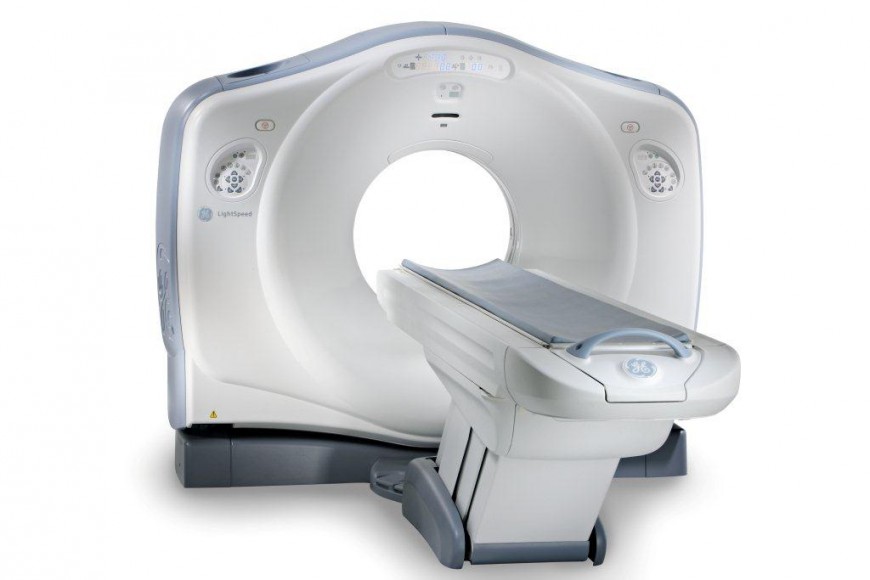New Low-Dose CT Scanners at Advanced Radiology Make Screenings for Heart Disease, Lung Cancer More Viable for Patients at Risk
(View the full original article here)
Shelton, CT (May 12, 2015)
So you know what a mammogram is, right? And you understand its value in finding breast cancer at an earlier, more treatable stage. But a CT scan as a mammogram for the heart or lungs? Just what does the analogy mean?
“It’s an analogy that makes it easier to understand what low-dose CT scans can do as a screening tool for people at risk for lung cancer or coronary artery disease,” said body imaging radiologist Alan D. Kaye, M.D., Chief Executive Officer of Advanced Radiology, Southern Connecticut’s oldest independent radiology practice. Advanced Radiology has served the region’s diagnostic needs for 110 years.
As the area’s only outpatient diagnostic imaging provider, Advanced Radiology recently became the first to install state-of-the-art GE Optima low-dose CT scanners for outpatient access. The scanners are available at four of Advanced Radiology’s seven locations.
“CT scans are considered one of the top medical advances of the past 100 years,” Dr. Kaye said. “They’re so widely used because they have given us a noninvasive way to diagnose illness. While radiologists have always been conscientious about the need to maintain the lowest radiation dose possible to obtain the information needed, constant developments have improved the precision of our equipment and safety of our patients. The dose-reduction technology in our new scanners is the latest advance. It makes screenings for lung cancer or heart disease in patients who have risk factors, but no symptoms, an even more attractive option for early detection.”
At their earliest stages, both heart disease and lung cancer have no symptoms. By the time symptoms appear, both diseases are much more difficult to successfully treat. Like screening mammograms, however, low-dose CT screenings can find disease at earlier, much more treatable stages.
Who can benefit from these screenings?
For lung cancer, the National Comprehensive Cancer Network (NCCN) recommends screenings for patients age 55 or over who have smoked an average of at least one pack of cigarettes per day for at least 30 years, or the equivalent (two packs per day for at least 15 years, for example). Medicare patients are covered up to age 77 for the screenings. Patients as young as 50 or who have less smoking history may be candidates if another lung cancer risk factor, such as occupational exposure, is present.
Heart disease risk is routinely evaluated by primary care physicians based on factors such as weight, blood pressure, smoking history, cholesterol levels, and family history. Physicians may recommend a screening called coronary CT for calcium scoring when a patient is assessed to be at moderate risk for heart disease but experiencing no symptoms. For a patient with symptoms such as chest pain of uncertain origin, doctors may recommend a different test called CT angiography. Both tests are fast, painless, and noninvasive, and may expose patients to less radiation than some other heart disease screening methods.
For cardiovascular applications, Advanced Radiology’s new CT equipment includes a 128-slice scanner with superior motion-stop capabilities, eliminating the need for medications to temporarily reduce blood flow and heart rate during exams. The rest of the new units are 64-slice scanners that produce optimal results in most other diagnostic applications, with studies interpreted by radiologists with subspecialty training in body imaging, musculoskeletal imaging, cardiovascular imaging, and neuroimaging.
GE Optima CT scanners generate images of superior diagnostic quality, with capability to image even the smallest anatomical and diseased tissue structures in fine detail. The scanners are equipped with GE’s DoseWatch software, which monitors radiation levels in real time to maintain the lowest possible dose throughout the exam.
Flexible hours for appointments make it easy for patients to access these advanced diagnostic capabilities and benefit from these radiation safety features. Patients and their physicians can access images and reports via the Internet through Advanced Radiology’s patient portal and ARConnect system, respectively.
“With our longstanding commitment to diagnostic quality and patient safety, we’re pleased to be able to stay current with the latest developments by making state-of-the-art low-dose CT scanners so widely available in Southern Connecticut,” Dr. Kaye said.
About Advanced Radiology
Advanced Radiology provides the highest quality general X-ray, fluoroscopy, mammography, ultrasound, MRI, CT, PET, PET/CT and nuclear medicine services at seven conveniently located offices with quick appointments and flexible hours for appointments in Fairfield, Orange, Shelton, Stamford, Stratford, Trumbull, and Trumbull Advanced Women’s Imaging Center (AWIC). With more than a century of service to physicians and patients in Southern Connecticut, Advanced Radiology combines excellence in subspecialty diagnostics with the latest all-digital imaging technology to provide compassionate patient care that is widely recognized throughout the medical community. For more information, please visit www.adrad.com.

